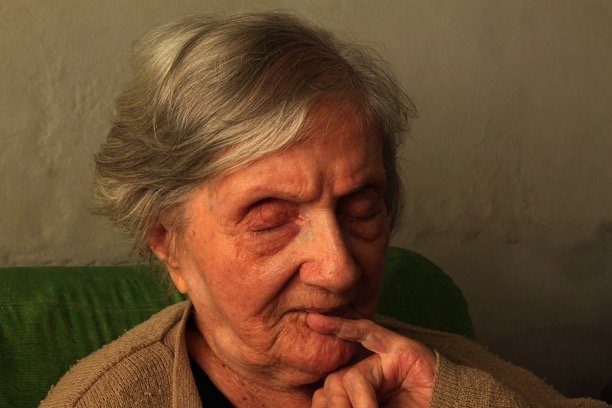Top 7 Therapies for Comfort and Symptom Management for your seniors with Alzheimer’s or Dementia

Those who are caring for loved ones with Alzheimer’s and Dementia are looking for the best ways to create comfort and peace for those who suffer from these diseases. However, caregivers need to take some time for themselves to recharge and relax when necessary.
In these instances, in-home services are available to not only allow you to have a break, but to provide complementary interventions to your loved one as well. Some of these options, you can even try on your own. These services may be just what your family member needs to have more good days. When you decide you are ready for help, contact Extra Hand In-Home Care for quality care and loving assistance.
Complementary Choices
Complementary services or alternative health tactics are not always the first thing that comes to mind when you think of memory and brain health. But some families report anecdotally that they have seen some improvements in their loved one’s daily lives from these treatments. While these options will not prevent Alzheimer’s or Dementia from progressing, they may aid in symptom management.
- Herbal Supplements
There have been varying reports regarding the efficacy of herbal supplements such as Gingko biloba and Coenzyme Q10. Should you decide to try an herbal option, there are several things you should consider. Herbal supplementation is not regulated the same way as pharmaceutical drugs. Therefore, the ingredients and purity of the formulas may not match the claims on the label. The best supplements are those that have been research in clinical trials, but those are few and far between.
There are anecdotal stories of successes with herbal therapies that do provide some hope for the future though. Should you decide to try an herbal supplement, check with a doctor beforehand as they can interfere with many prescription medications.
- Aromatherapy
Using essential oils to provide memory assistance or simply as a relaxation tool may be beneficial. Consider using various scents to tell a story from your loved one’s childhood. If they grew up near the sea, you could find a scent that may trigger a happy memory. You can also use oils for specific issues such as insomnia. Lavender may assist with falling asleep, while lively peppermint could be a good morning option.
- Meditation
There are many guided meditations available online that could provide relaxation and calm for your family member or friend. You can also do your own guided meditations by gently telling a story or describing a comforting scene.
- Massage
While you can use the services of a massage therapist, even a light hand and wrist massage done at home can help to relieve anxious feelings and sadness. Combining lotions that have calming scents might be ideal to relax, for both of you. The power of touch for dementia patients has been shown to be powerful in getting them to redirect to positive thoughts.
- Exercise
Movement and stretching is critical for dementia patients. A daily routine of walking (if they are ambulatory), chair exercises, and movement games is recommended for any person with a degenerative disease. Use props such as their favorite sports balls, or photos of loved ones in their exercise routines. You can have them point to photos in the air to provide range of motion in their arms. Texture is important as well and many patients with dementia will spend hours holding a play ball, a doll, tissues, or a towel while they “fiddle” with their fingers. Hiring an activity therapist to design, plan and teach you how to implement certain therapies could go a long way in providing hours of relief and positive feelings for both you and your patient.
- Art
Take the time to color a picture, listen to music, practice photography, or do a craft together. Memories of the arts seem to be the last to go with dementia patients so these activities are things you can do with patients early on in their disease all the way to the final days. Music recognition is especially strong even in a loved one’s final days and it can be used to soothe and calm someone during difficult times. It also provides for great memory triggers and may be one of the ways your loved one uses to communicate when they can’t find the words.
- Friends and family
Having regular visitors helps those with dementia still feel active and involved. Talking with others can help keep the brain working and active. Therapists can work with visitors to provide tips for how to best communicate with those with dementias.
Consider these tips and the therapeutic services in-home caregivers can provide either to help you cope better, or to help your loved one while you take a break.
More to Read:
Previous Posts:
Next Posts:




